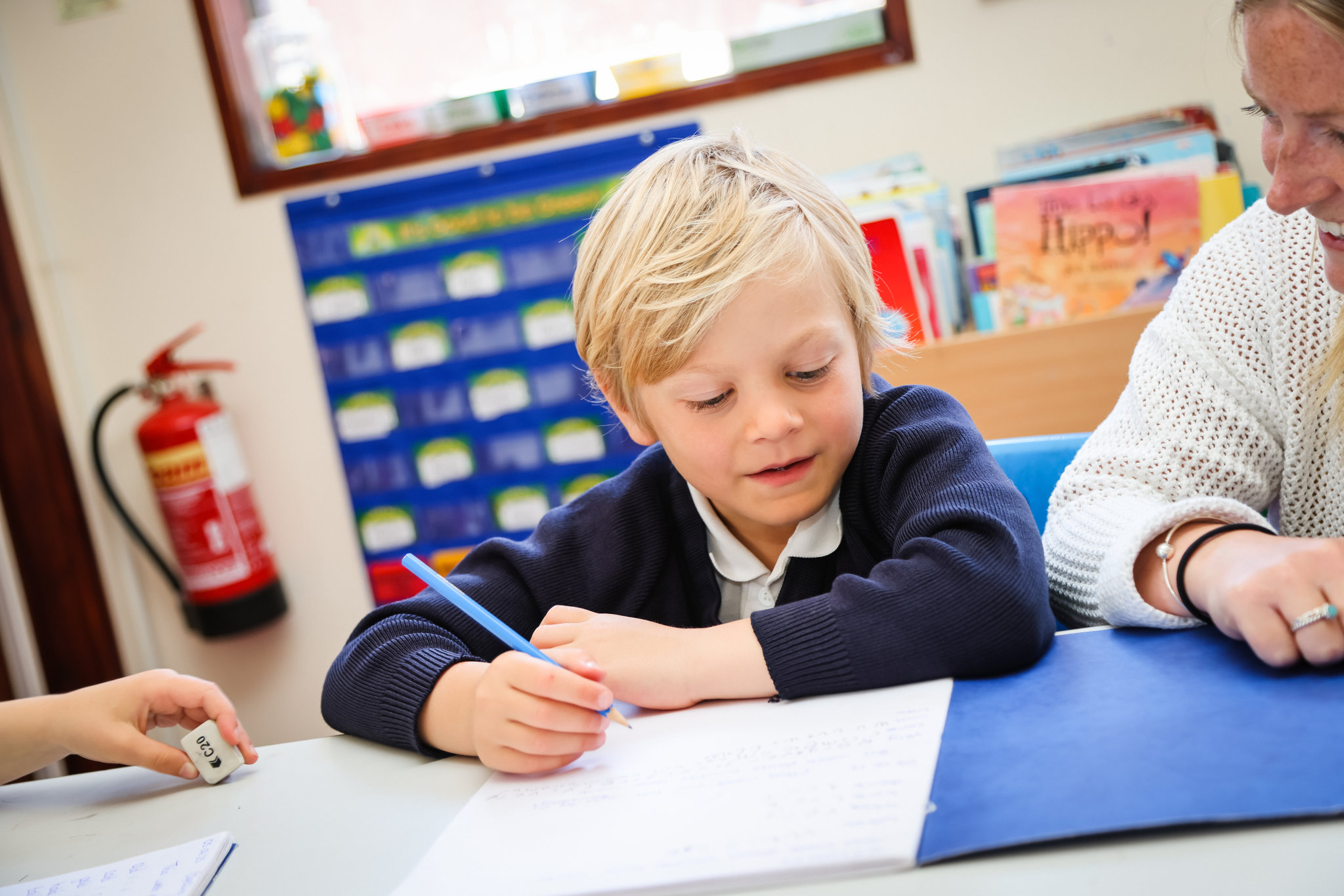Tests and exams can cause a lot of nerves for both children and adults. As parents, we want to know we’re doing everything we can to support our kids with their revision and help them excel across all their studies.
At our private school in Devon, we take pride in giving every child the tools they need to succeed inside and outside of the classroom. However, the role of parents and home revision can never be underestimated. Here are some tips to help ensure your child has everything they need to continue their learning at home.

Create a Revision Plan
If your child has a test or exam on the horizon, the best thing you can do straightaway is put a revision plan in place. Doing this will help you avoid cramming revision into the last week or two, which will help everyone reduce their stress.
Often, exams will come in bunches where students need to complete various tests across different subjects in the same week or month. If left unmanaged, children may revise their favourite subjects more than their weakest, but a structured plan will ensure more challenging lessons get adequate study time ahead of the test.
Create a Study Space
We often underestimate the importance of a dedicated work or study space. As working from home has become increasingly popular, while sitting on the sofa with your laptop might be okay every so often, it’s not great for keeping focus when revising.
To help boost your child’s focus, create a study space that is as free from distractions as possible. Ideally, your child should have their own desk in a separate room. If that’s not possible, creating a clean workspace in the kitchen or dining room and giving them peace and quiet during study times can be just as effective.
No matter where their study space is, make sure it is a quiet and clean space with plenty of room for books and notes.

Check Exam Specifications
Depending on the nature of what’s being revised, you should be able to find information that could help to lead any revision plans.
If your child is revising for an exam, the exam board responsible will often publish details about what the exam will entail. They will also usually provide practice papers for mock tests, another great revision tool.
If your child is not studying for a formal exam, you may still be able to determine what specific subjects they need to study and the nature of the test itself. This will help you ensure that any revision is focused on the right tasks.
Try Different Learning Styles
You’re likely to be already aware that different people are receptive to learning in different ways. Some of us learn best from reading and writing, while others may learn more effectively through listening (auditory) or moving and feeling (kinesthetic).
Your child might already have a good idea about the best way they learn and retain information, but revision can be a great time to experiment with different approaches. Play with different techniques, such as designing mind maps and flashcards, or talking about the subject, to see if a particular style helps them with tricky subjects.
Whether your child finds a particular learning style more beneficial or not, trying different things is also a fun way to keep revision feeling fresh and exciting.
Encourage Breaks
Granted, breaks might not need too much encouragement depending on the subject. However, it’s still important to make sure the balance between revision and normal life is struck, even in the heat of exams season.
How many breaks children should have during revision sessions can vary depending on how difficult the work is and other personal factors. However, the consensus is that a 30-minute session of high-quality, focused revision is better than trying to force multiple hours of studying on a tricky subject.
This is where a good revision timetable comes in handy. By starting the revision process earlier, you and your child can be confident in allowing more breaks and celebrating revision milestones (such as when a particularly tricky subject is learned).
Eat, Sleep and Exercise
This is arguably the best thing you can do for a child during their revision sessions. Studying takes a lot of energy, so ensuring their physical health remains strong can be just as important as trying to help with their subjects.
We all know how important good food, sleep and exercise are to supporting a healthy body and mind. If we can keep our children feeling healthy, active and positive, they’re more likely to excel during their study sessions.
Ensuring your child has tasty, healthy snacks while they’re revising can help keep their energy levels up. Consider avoiding late-night revision sessions in favour of having a good night’s sleep that leaves them prepared to revise the next day. If your child engages in after-school clubs, make sure your revision plan leaves space for these to continue so their bodies remain active.

Give them Room to Learn
Last but not least, it’s important to strike a balance between being a supportive parent and being overbearing. As much as we would like to provide all the support we can, tests are ultimately an experience they have to go through alone.
It’s important to take an interest in your child’s studies without taking over. Getting too involved can start to feel like hassling, which creates additional pressure for your child. Simply use the points mentioned above to show your child that you care about their studies and that you’re there to support them however they need.
Sticking to the various points mentioned above, while also making sure your child has the space to enjoy and engage with their subjects, is a great formula for ensuring they get the most from their home study times.








